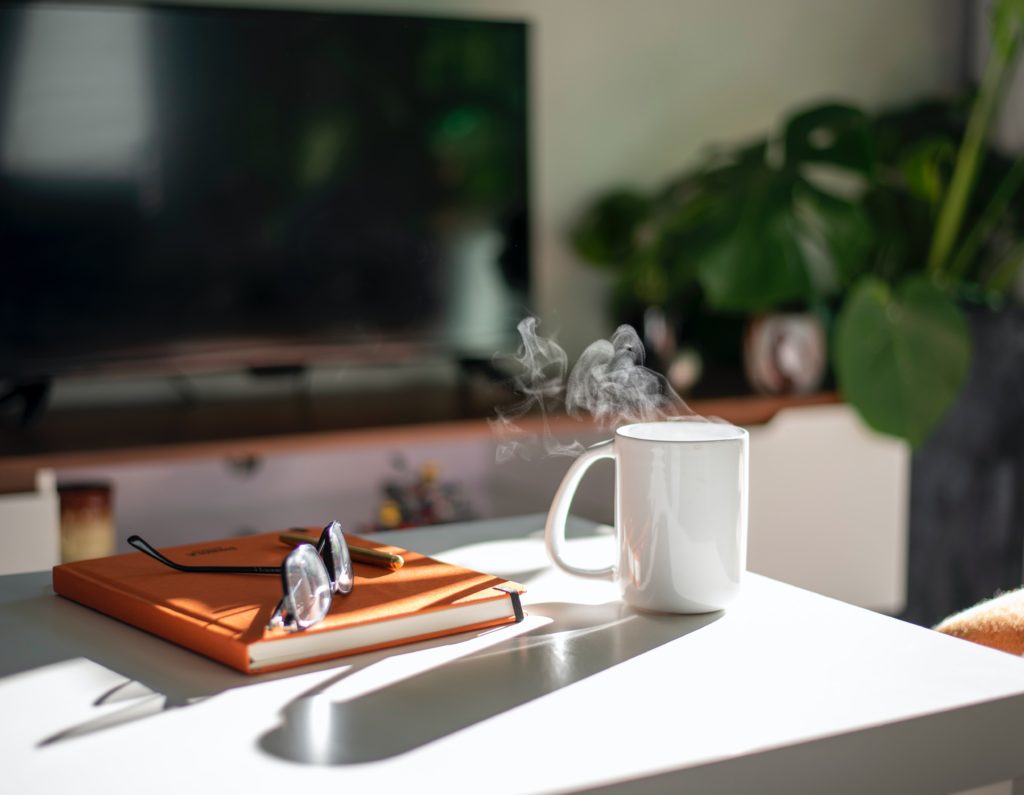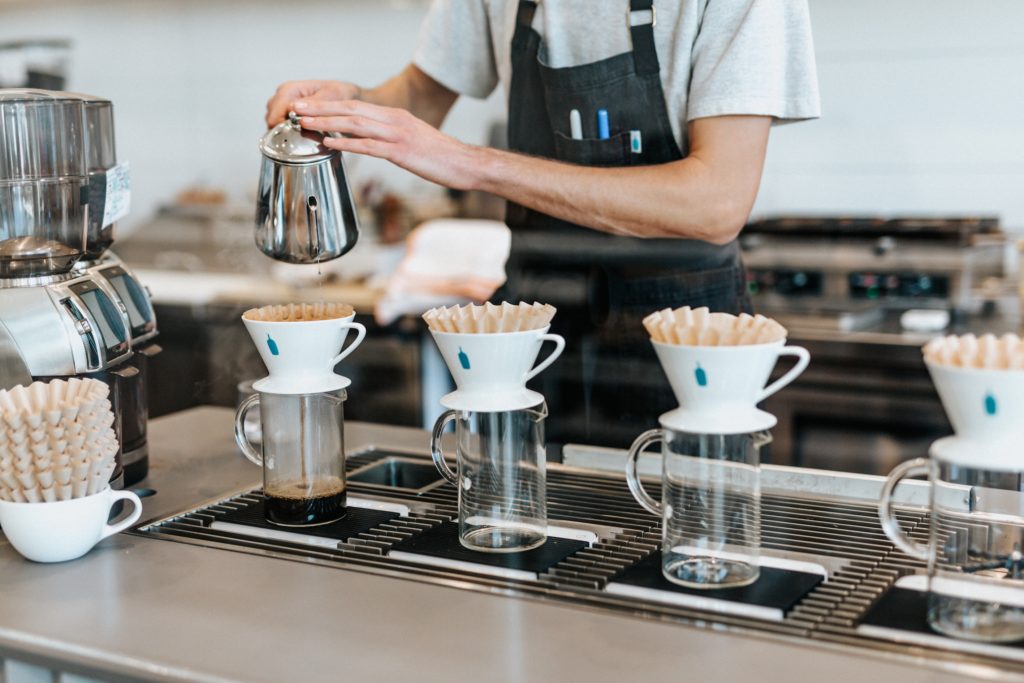Living through our current times can feel stressful at times. Therefore, it’s important that we learn how to care for our stress. Small stress factors can snowball into serious mental conditions if we don’t give it the attention that it needs.
In order to stay stress-free, we want to implement stress relievers in our everyday life. Our everyday beverage, coffee, is drawing attention for its mental and physical benefits.

Contents
The Health Benefits of Coffee
The health benefits of coffee have been known for ages. People were already fond of coffee as a “remedy for sickness and a drink that keeps sleepiness away” in the Arabian peninsula more than 500 years ago.
Nowadays, find that coffee polyphenols, such as chlorogenic acids, are great antioxidants that hold anti-inflammatory properties. The aroma of coffee is also known to have relaxing effects. According to studies, when we smell coffee, the alpha waves (the relaxed state brain wave) in our brains increase. Additionally, coffee helps stimulate our parasympathetic nerve system, which helps promote better metabolism.
As you can see, recent studies are now starting to find scientific proof of the long-known benefits of coffee.

The “3R’s” That Protects Our Mental State
Within the mental health field, it is said that the “3R’s” are important keys to follow in order to prevent mental illness and reduce stress.
The 3R’s:
- Rest
- Relaxation
- Recreation
Continually following these 3R’s will help ease our everyday stress. There are many ways to implement the 3R’s. Recreational sports, hobbies, and traveling are effective but require dedicated time and planning. A simple easy habit of taking coffee breaks is just enough to achieve the 3R’s.

Best Coffee Break Practices Using The 3R’s
To best practice the “3R’s,” we recommend that you get involved in the pouring process of the coffee instead of just drinking it.
1. The “Relaxation” benefits are as described earlier.
2. The process of boiling the water to pouring and brewing all contribute to the “Rest” factor experience, as the action distracts us from the focus on stress.
3. The origin of the beans, the kind of roast, water temperature, aroma, taste, and brewing process are all considered as a craft to be enjoyed. It is a “Recreational” experience when the enjoyment of these elements are combined to create the perfect cup!
There are plenty of coffee beans from around the world that are available at supermarkets, online, and at coffee shops. If you can, find beans that you like and mill it yourself. This will enhance more of the recreational aspect. Of course, if you are busy, just boiling water and pouring a simple cup that you enjoy is enough to experience the 3R’s.
By the way, the chlorogenic acid levels are higher when the coffee is properly poured over instead of using instant coffee. Although it is more time-consuming, we recommend going through the pour-over process if you want the full health benefits.

Increase Concentration and Productivity With Coffee

Coffee not only makes us feel relaxed, but it also increases our concentration and productivity.
A study showed that a brain wave called P300 increased when people smelled the aroma of coffee. This is the same brain wave that increases when we reach a concentrated state.
Scientists found that different coffee beans had different levels of relaxation and concentration effects. For example, Guatemalan and Jamaican Blue Mountain types showed stronger effects of relaxation, while Brazilian Santos and Sumatra Mandheling were more effective for concentration.
We can use this knowledge to our advantage and choose coffee beans based on whether we want to relax and reduce stress or concentrate and boost productivity.
Beware of Caffeine Overconsumption

We’ve talked about the multiple benefits of coffee, but that doesn’t necessarily mean we should consume it limitlessly.
The caffeine in coffee helps gastric secretion which supports the digestion of food. However, drinking too much coffee on an empty stomach will secrete too much gastric juice and cause stomach irritation. Additionally, caffeine excites the nerve, so drinking it before bed can cause light sleep or sleeplessness. When the nerve is overstimulated, it could also cause dizziness, increased heart rate, physical discomforts, anxiety, and nervousness.
If we apply it to power naps, there are ways to use this mechanism of caffeine to our advantage.
For daily consumption, 400 milligrams (mg) of caffeine per day appears to be safe for healthy adults. That’s roughly the amount of caffeine in 3 to 5 cups of coffee.
There are many health benefits to coffee, but keep in mind that moderation is always key.
Looking to improve your mental wellbeing? Try the SELF MIND app FREE for 1 week!
If you’re looking for more tips on how to care for your mental health, check out some of our past blog posts!
Reference:
ISIC the institute for scientific information on coffee. (n.d.). Coffee and Health. Coffee and Health. Retrieved May 3, 2021, from https://www.coffeeandhealth.org/
Yamagata, K. (2018). Do Coffee Polyphenols Have a Preventive Action on Metabolic Syndrome Associated Endothelial Dysfunctions? An Assessment of the Current Evidence. Antioxidants, 7(2), 26. https://doi.org/10.3390/antiox7020026
Yajima, J., Hase, M., Iwanaga, H., Kai, M., & Shiga, J. (2014). The Rise in Performance and the Buffer of a Stress Response by Coffee Intake. Bulletin of Beppu University Graduate School, 16, 81–88. http://repo.beppu-u.ac.jp/modules/xoonips/download.php/gk01608.pdf?file_id=7085



